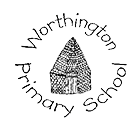Science
At Worthington Primary School
Intent
At Worthington Primary School we believe Science provides the foundation for children to understand the world around them whilst gaining transferrable life skills such investigation, observation, interpretation and communication. We strive to encourage each child to think scientifically and build on their skills as they move through each year group, whilst providing an awareness of all the possibilities science can offer within their future.
We aim to ensure all children:
- Build on children’s curiosity to develop an interest and enjoyment of science
- Experience purposeful and imaginative science lessons which cover major scientific concepts
- Have sufficient scientific knowledge to understand both the uses and implications of science, today and in the future.
- Use accurate recordings, the correct techniques and appropriate scientific language to analyse their results and find answers to given scientific questions.
- Have an awareness of the links between science and other school subjects, as well as their lives more generally.
Implementation
At Worthington Primary school we follow a 2-year rolling programme which allows the children to learn about each topic whilst in mixed year group classes. The weekly lessons have a balance of being practical and hands on, whilst taking the time to learn about accurate recording and measuring which is crucial to supporting the development of thinking scientifically and answering scientific questions. As per the National Curriculum the rolling programme includes:
Reception class, in accordance with the ‘Statutory framework for the early years foundation stage’, focus will be put on the seven areas of learning, with the scientific aspect of pupils’ work relating to the objectives set out within the framework.
Years 1 and 2, pupils will be taught to:
Ask simple questions and recognise that they can be answered in different ways.
Observe closely, using simple equipment.
Perform simple tests.
Identify and classify.
Use their observations and ideas to suggest answers to questions.
Years 3 and 4, pupils will be taught to:
Ask relevant questions and use different types of scientific enquiries to answer these questions, setting up simple practical enquiries, comparative and fair tests.
Make systematic and careful observations and, where appropriate, take accurate measurements using standard units and a range of equipment, including thermometers and data loggers.
Gather, record, present and classify data in a variety of ways to help answer questions.
Record findings using simple scientific language, drawings, labelled diagrams, keys, bar charts and tables.
Report on findings from enquiries, including oral and written explanations, displays or presentations of results and conclusions.
Use results to draw simple conclusions, make predictions for new values, suggest improvements and raise further questions.
Identify differences, similarities or changes related to simple scientific ideas and processes.
Use straightforward scientific evidence to answer questions or to support their findings.
Years 5 and 6, pupils will be taught to:
Plan different types of scientific enquiries to answer questions, including recognising and controlling variables where necessary.
Take measurements, using a range of scientific equipment, with increasing accuracy and precision, taking repeat readings when appropriate.
Record data and results of increasing complexity using scientific diagrams and labels, classification keys, tables, scatter graphs, bar and line graphs.
Use test results to make predictions to set up further comparative and fair tests.
Report and present findings from enquiries, including conclusions, causal relationships and explanations of the results and the degree of trust in them. This should be in oral and written forms such as displays and other presentations.
Identify scientific evidence that has been used to support or refute ideas/arguments.
Wherever possible, the science curriculum will provide opportunities to establish links with other curriculum areas.
Impact
Teachers use formative assessment to inform the planning of their next lesson, ensuring children are supported and challenged appropriately. As the children move through each key stage, they will build on their prior knowledge and continue to carry enthusiasm into their investigations of each topic.
We aspire for each child to leave our primary school setting with confidence in their science knowledge and a passion to extend their skills and understanding further. Our teaching methods and inclusive style of delivering the curriculum ensures each child will be equipped for the next stage of science. Overall, we encourage each child to know their capability in science and strive to be part of the exciting and ever-changing world of science.
Subject leader: Miss Rebecca Dennis
